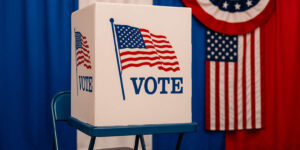Methodist High Court Considering Challenges to Gay Teachings
Facing a wave of open defiance to church law, the top court of the United Methodist Church is set to consider rulings challenging church teaching on homosexuality.
The United Methodist Judicial Council will decide whether church ministries can advocate for the acceptance of homosexuality, whether ministers can officiate at same-sex ceremonies and whether a regional conference can urge members to ignore portions of Methodist law.
The rulings made by regional conferences are among 17 items the court will consider at its Oct. 23-26 meeting in Baltimore.
The United Methodist Church has repeatedly voted to retain language in its constitution, the Book of Discipline, that says “the practice of homosexuality is incompatible with Christian teaching” and that “self-avowed practicing homosexuals” are not allowed to serve as clergy.
In addition, the church explicitly says that churches may not host, and ministers may not celebrate, “ceremonies that celebrate homosexual unions.”
Multiple regional conferences called for greater acceptance of gay couples during the recent conference season, saying the church’s current teachings are unjust and ought to be ignored.
The Judicial Council hearings come as at least four United Methodist ministers—including the former dean of Yale Divinity School—are facing trial for officiating at same-sex weddings, and more than 1,500 clergy have signed a statement offering to marry gay couples.
The court has no power to change existing church policy—only the quadrennial General Conference can do that—but it can set boundaries on how far clergy and congregations can go in adhering to current policy.
Rev. Thomas Lambrecht, vice president of Good News, a conservative group within the United Methodist Church, said he believes the high court will maintain church doctrine and that accepting the resolutions would entirely undermine church law.
“What is concerning to us at this point is that so many people are attempting to essentially disregard our church’s position,” Lambrecht said. “If people are putting themselves forward as United Methodist clergy and bishops and are not willing to abide by United Methodist policies, that seems to us to be somewhat dishonest and reflects moral confusion . . . How can you claim to be a United Methodist and take actions that are contrary to that?”
The regional council rulings say the inconsistencies are instead within the Book of Discipline, which calls Methodists to minster to all people yet bans clergy from officiating at same-sex ceremonies, said Matt Berryman, executive director of Reconciling Ministries Network, an independent United Methodist group that advocates full inclusion of gay people.
Berryman said the rulings coming before the Judicial Council could be beneficial because they will further the conversation about the church’s response to gay people.
“We have to look at the tension between what’s in the Discipline and the reality of what’s going on,” Berryman said. “We have to decide what it means to love God and love our neighbor. And that’s not always clear, given the deep ambiguities in the Scripture.”
Also among the items to be considered is a review of the decision to remove a lesbian woman from the ordination process. Mary Ann Barclay (formerly Mary Ann Kaiser, before her August wedding to another woman) had been recommended for ordination by her district committee. She is appealing a decision by Southwest Texas Conference’s Board of Ordained Ministry to remove her from the process without interviewing her.







































